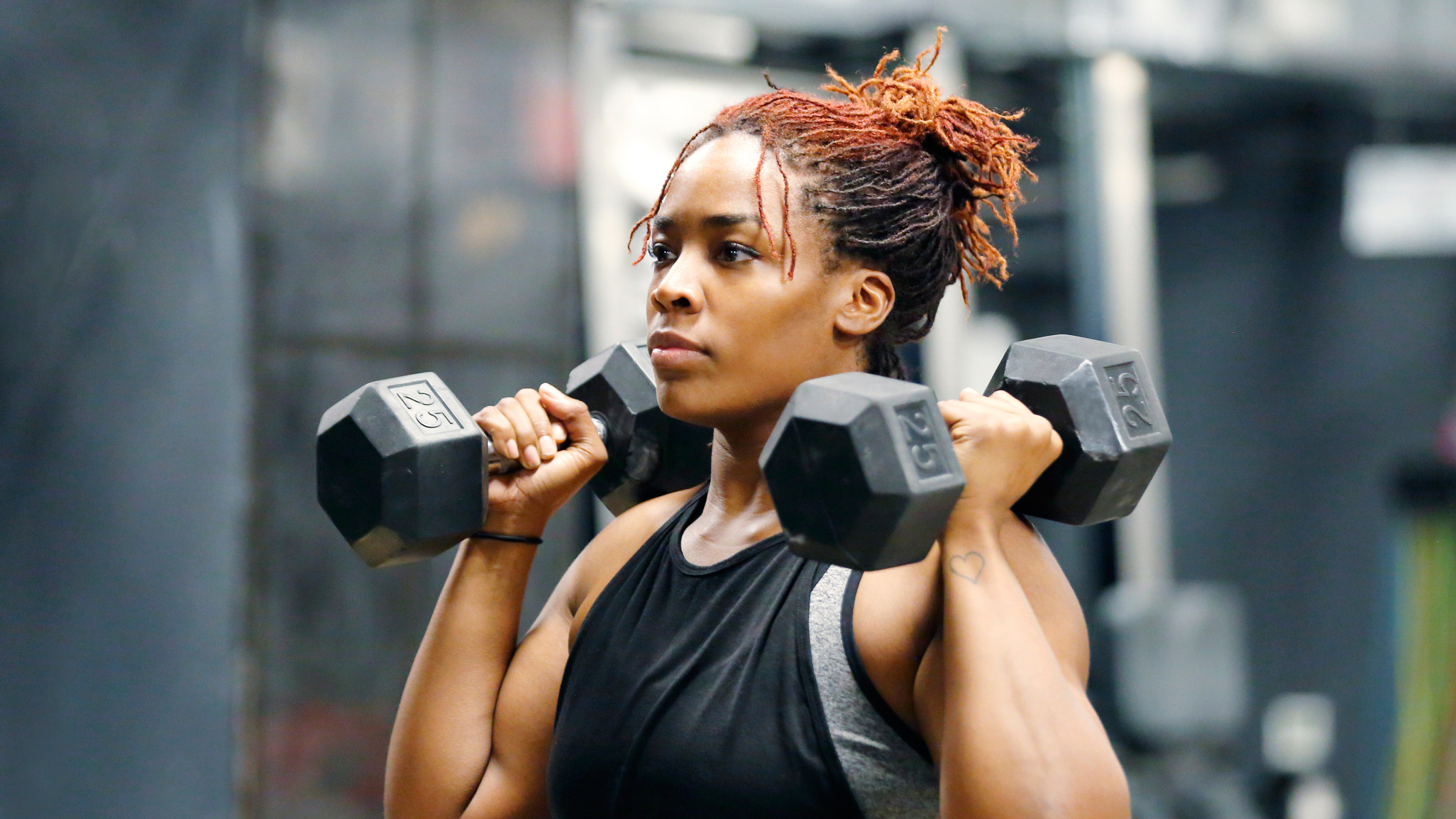Are resistance bands actually better than dumbbells for building muscle?
Dumbbells vs resistance bands – which fitness tool will make you stronger?


Start your week with achievable workout ideas, health tips and wellbeing advice in your inbox.
You are now subscribed
Your newsletter sign-up was successful
If your area has been under strict COVID restrictions and your local gym closed over the last year, you likely bought a bit of fitness kit to continue exercising at home.
For those who like using weights, the transition has been especially hard, as most people don't have space for a full weights station, including squat rack and bench, in a garage or home gym.
So, with that in mind, many of us bought a set of the best adjustable dumbbells, or best resistance bands, and got to work. But which is the superior muscle-building home workout tool?
To begin with, resistance bands are more conveniently stored, portable, and safer for people with joint issues than free weights, as there's no danger of dropping your form and having heavy weights swinging wildly out of control. They weigh very little: all tension is applied when the band is stretched, creating an elastic resistance equal to the force exacted on it.
A study published by Brazilian scientists found the practical nature of resistance bands didn't impact on their ability to tone of grow muscle.
Comparing elastic bands to conventional resistance training kit using weights, they found "elastic resistance training is able to promote similar strength gains to conventional resistance training, in different population profiles and using diverse protocols".
In addition, it's easy for the user to release the tension on a band – known as the "eccentric phase" of the workout – slowly and under control, which will boost muscle growth. This is much harder to do using free-weights because of the instability of keeping a heavy object under your control.
Start your week with achievable workout ideas, health tips and wellbeing advice in your inbox.

However, that's precisely why free weights are so good. Imagine doing a chest press with a barbell vs doing it with dumbbells: it's harder with dumbbells, because you have to spend more effort keeping your form in place.
Lowering dumbbells slowly, under control with good form, is much harder than doing so with resistance bands. On the one hand, it makes things all the more challenging. On the other, it means you'll be able to build muscle more effectively.
What's better out of the resistance bands and adjustable dumbbells? It's not an easy answer. For beginners, it's no doubt resistance bands offer a cheaper, easier, more portable way to build muscle. For experienced resistance training enthusiasts, the increased effort required to use heavy dumbbells means they're likely to be a more worthwhile investment.
Matt Evans is an experienced health and fitness journalist and is currently Fitness and Wellbeing Editor at TechRadar, covering all things exercise and nutrition on Fit&Well's tech-focused sister site. Matt originally discovered exercise through martial arts: he holds a black belt in Karate and remains a keen runner, gym-goer, and infrequent yogi. His top fitness tip? Stretch.
